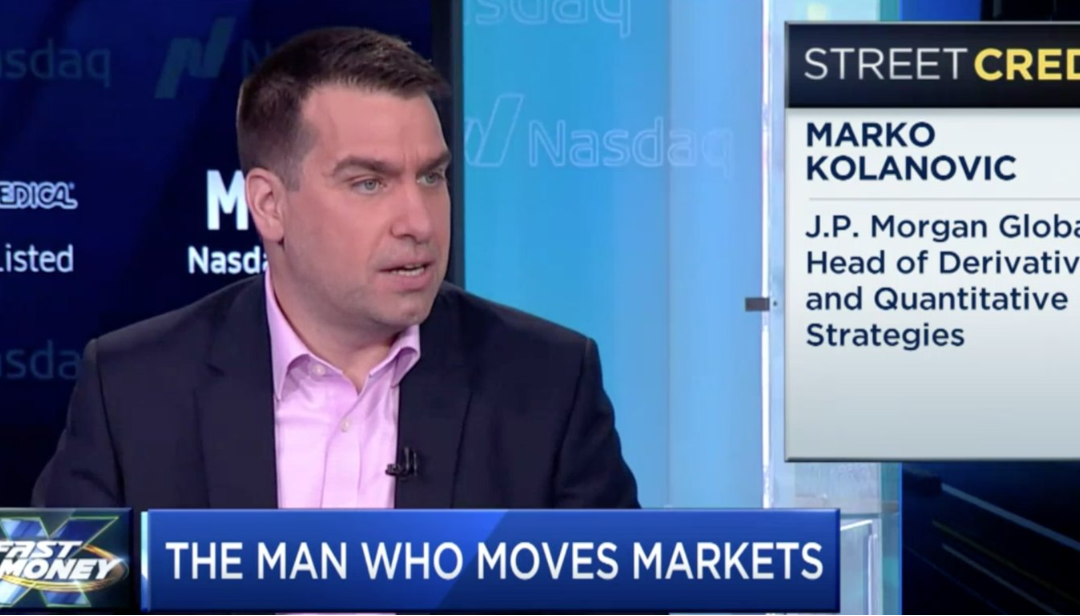JPMorgan & Chase Co.’s market-moving Global Head of Macro Quantitative and Derivatives Strategy Marko Kolanovic wrote in a recent note to clients that a bubble has formed in defensive and low-volatility stocks inflated by coronavirus fears, a bubble that is primed to burst.
“The bubble we are describing is expressed in equity factors … . We caution investors that this bubble will likely collapse, i.e. this time is not ‘different.'”
Fears of the spread of the virus, otherwise known as COVID-19, which has now killed more than 2,100 people and infected more than 75,700 worldwide, drove investors into these defensive and low-volatility stocks in record numbers. Hedge funds also have shifted in these sectors of the market to reduce risk.
Defensive stocks are looked to as a safe haven when economic growth is threatened, and they include stocks like health care and utilities.
Kolanovic and JPMorgan are advising movement out of these sectors into value and commodity stocks, as well as emerging markets.
“Bonds, momentum stocks, and low volatility stocks rallied — pushing the valuation spread between defensive and cyclical stocks to a level 2x worse than during the peak of the late-’90s tech bubble,” Kolanovic wrote in a note to JPMorgan clients this week. “The bubble we are describing is expressed in equity factors … . We caution investors that this bubble will likely collapse, i.e. this time is not ‘different.'”
Kolanovic went on to warn that some tech names are trading at “unsustainable valuations” judging by the large number of speculative bets on the options trading market. (See our “How to Trade Options: A Complete Guide” to learn more about options trading).
“Value stocks are typically on the other side of all of these trends that inflated this bubble,” Kolanovic wrote, according to CNBC.
Once the virus is contained, appetite for risk should return, again pushing people back to energy and value stocks.
“Our view that cyclical and value assets should rally in the first quarter was set back by the COVID-19 epidemic,” Kolanovic wrote, according to Bloomberg. “We caution investors that this bubble will likely collapse, i.e. this time is not ‘different.”’




